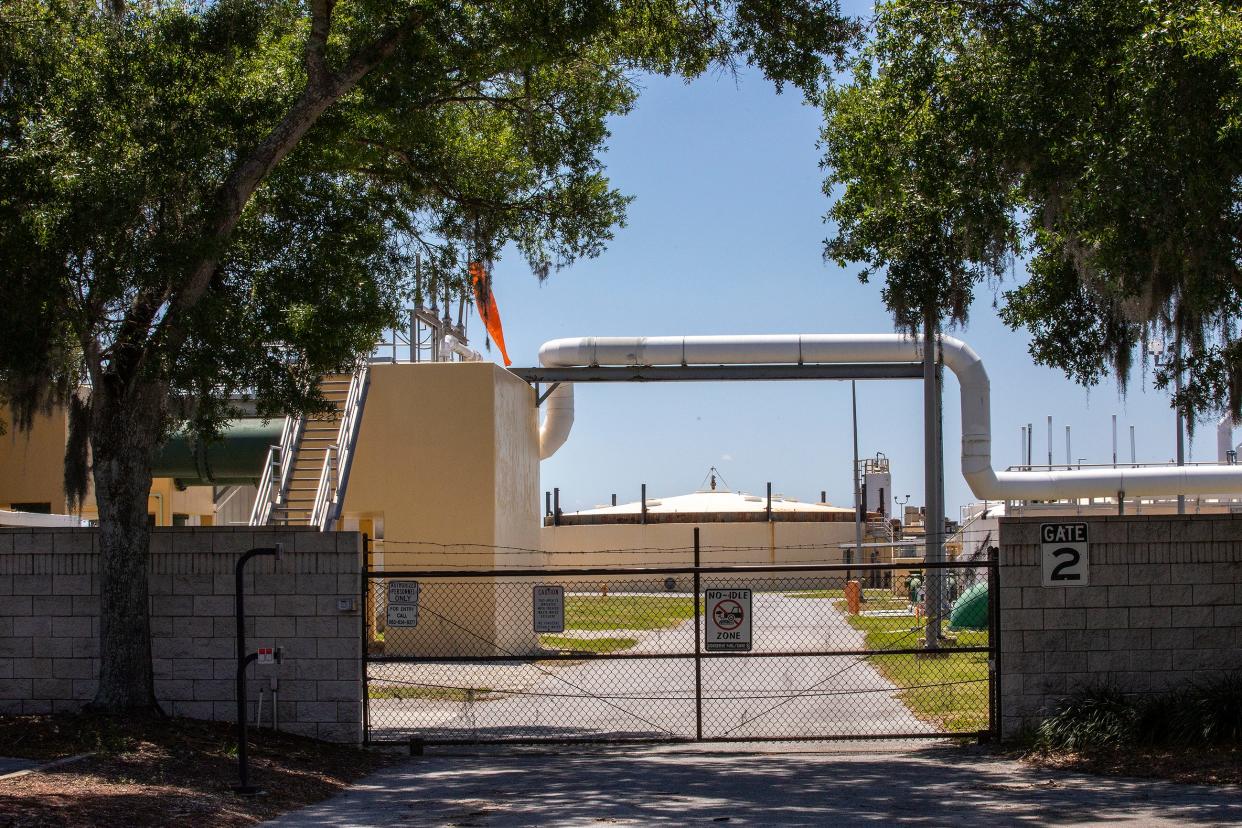Will Lakeland start composting human waste? It's a possibility, with a site in mind

LAKELAND — Lakeland officials are wondering whether the city's unwanted waste could lead to a new source of revenue, without making a big stink.
City commissioners voted unanimously on Monday to contract Tampa-based Geosyntec Consultants Inc. to run a cost-benefit analysis to determine whether Lakeland could benefit from opening its own composting facility. It will pay nearly $120,000 for a six-month study and report.
"This analysis is to just further lock in this is the right way to go," said Robby Kniss, the city's engineering manager for Water Utilities. "We were close, but we want to be sure before we make those commitments."
In 2022, the city previously hired a firm, Black & Veatch, to determine the best and cleanest end product that could be produced by the city's wastewater handling facilities.
"Composting came out as our No. 1 ranked option," Kniss said. "All of them came very close in capital and operating costs. It came down to level of risk factors."
The idea of composting is to enhance biosolids, or treated human waste, by incorporating yard waste to produce a nutrient-rich soil additive, according to Kniss. The city could use the product itself or sell it to any interested parties.
Currently, the city's top-ranked Class AA biosolids are utilized as a low-grade fertilizer, he said, which is about 20% solids and spread using agricultural equipment. Kniss said it's very wet and can be hard to handle. It's been processed this way for the past 16 years.
Lakeland generates about 230 tons of biosolids a month, according to documents shared with Geosyntec. When the waste doesn't meet Class AA standards, the city must pay $38.94 a ton to send it to the landfill. The documents say it costs Lakeland about $92 an hour, including labor and equipment costs, to haul biosolid waste.
Dixieland: FDOT tells Lakeland that funding to move the Dixieland road diet forward is a city problem
Geosyntec will be paid to perform a comprehensive six-month study looking at the feasibility of the city running a compost facility, the start-up and operational costs, benefits and what potential market there is for resale of any compost produced.
Kniss said city staff have visited a similar municipal-run facility in Fort Myers and have plans to visit one run in Hillsborough County as part of the analysis.
Lakeland Mayor Bill Mutz asked what, if any, potential odors could be produced during the composting process.
"We haven't found the odors to be offensive," Kniss said. "But what one person finds offensive, another person doesn't find offensive."
As the composting process would require mixing in yard waste and potential debris, city officials are considering a future site for the composting station next to its future solid waste transfer station to be constructed on Combee Road.
"If we put it anywhere else, we'll have additional trucking costs. The trucking cost to get it to a final disposal site," Kniss said. "It's a material-handling problem."
Geosyntec Consultants will be expected to consider land zoning issues, potential site issues, odors and the site's potential neighbors in its study. The most important factor will be the capital required to build and operate the composting facility.
"Is this an opportunity to make money, or are we just going to break even?" Kniss said.
The rough price of establishing a composting facility is about $20 million, according to Kniss, who said the city will seek out any federal or state funding opportunities that might be available. The city is also interested to see if other local municipalities are interested in a partnership.
Commissioner Stephanie Madden asked whether there was the possibility a private business wouldn't want to buy the city's biosolids and handle the process. Kniss said it's an option, but often the city has to pay the business to take and cart them away. It does get rid of a lot of the regulatory and environmental risks involved, he said.
Lakeland residents residing outside city limits might be familiar with BS Farm & Ranch Inc., which accepted human waste as part of an organic waste recycling facility. Kniss said the city's composting facility would differ from BS Farm & Ranch, as it would begin with a more highly treated product and wouldn't accept raw sewage from septic tanks. He was unable to speak to the exact processes, not knowing BS Farm & Ranch's private business model.
Sara-Megan Walsh can be reached at swalsh@theledger.com or 863-802-7545. Follow on X @SaraWalshFl.
This article originally appeared on The Ledger: Lakeland hires consultant to see if human waste could lead to wealth

